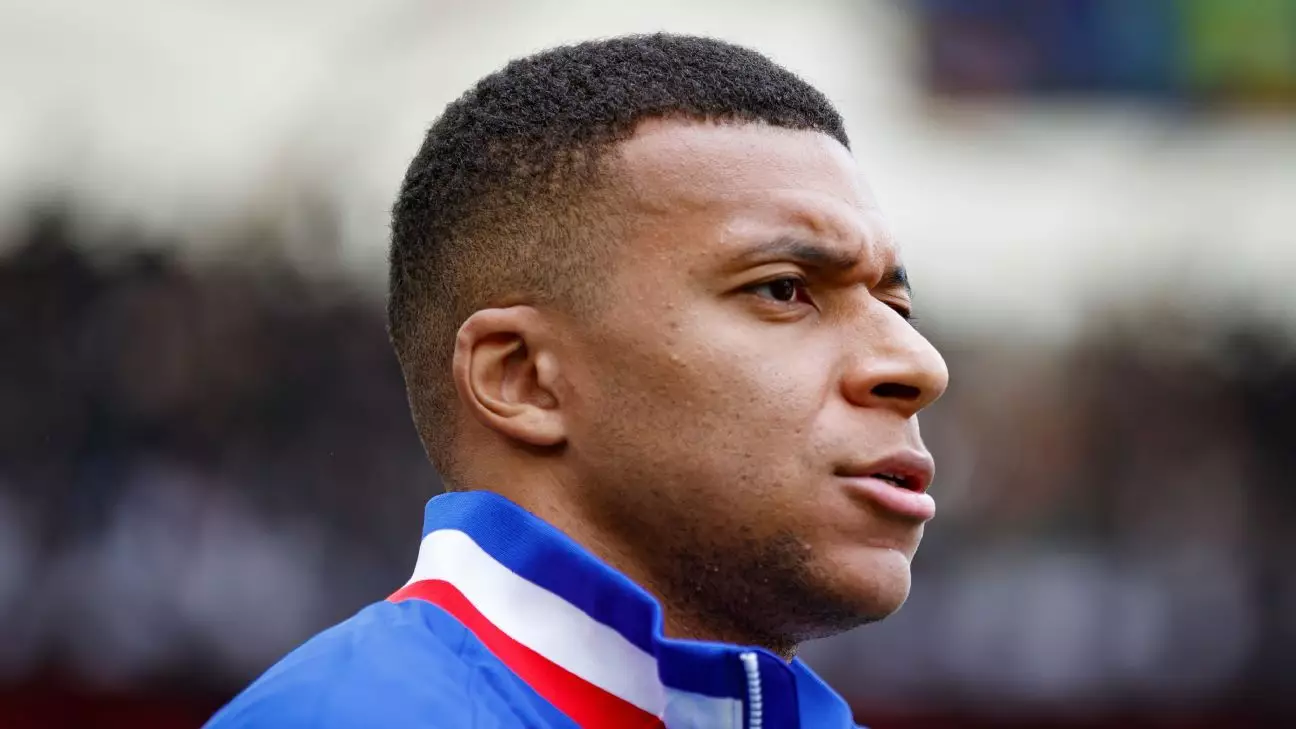Kylian Mbappé’s saga with Paris Saint-Germain stands as a stark reminder of the darker undercurrents that often plague professional sports. In a recent legal filing, the French superstar has leveled accusations against PSG, claiming they subjected him to moral harassment—a serious charge that underscores the treacherous waters of contractual obligations and player treatment in elite football. At the core of the controversy is Mbappé’s assertion that he is owed €55 million ($61 million) in unpaid wages while also alleging that he faced irrational isolating tactics, referred to in France as “lofting,” during a turbulent period in his relationship with the club.
The Price of Sticking to Your Principles
Typically, star players wield immense influence, negotiating for terms that align with their expectations and aspirations. However, Mbappé’s situation reveals a Rohypnol-tinged perspective on loyalty. After signing arguably the most lucrative contract in PSG’s history a year earlier, the pressure to fulfill promises surrounding high-profile signings fell like a guillotine over his career. Reports indicate that Ioannis, the promise-keeper of ambitions, was morally compromised when PSG failed to deliver star players who could take the team to another level. This disappointment built an emotional vacuum that intensified when he opted against extending his contract, leading to an impending and bitter exit.
Mbappé’s decision to reject a lucrative deal with Al Hilal in Saudi Arabia further exemplifies his commitment to his career trajectory and principles. Opting for potential future glory rather than immediate financial gain speaks volumes about a player at the crossroads, yearning to solidify his legacy in a competitive landscape rife with pressure and expectations.
The Game Beyond the Game
Lofting—a term unfamiliar to many outside of the footballing world—serves as a perfect embodiment of the structural flaws inherent within this environment. The practice of sidelining a player for reasons that go beyond strictly sporting grounds adds a layer of insidious complexity to club-player relationships. It raises pertinent questions: How far can clubs go in punishing a player for asserting their autonomy? In Mbappé’s case, the snubbing manifested as a vendetta that turned into a publicly embattled scenario, pitting him against the very institution meant to support his ascent.
The financial implications of such a legal conflict are not trivial. By accusing PSG of moral harassment, Mbappé has thrust the club into a media storm, compelling fans to pick sides in an escalating narrative. This predicament will likely have repercussions not just for Mbappé, who risks being viewed as a martyr, but also for PSG, which could see its brand integrity questioned amid public backlash.
A Legacy Unfulfilled? The Emotional Toll
As if caught in a Shakespearean tragedy, Mbappé’s fate at PSG was marked by apathy and resentment from fans whose expectations he failed to meet in the end. The booing at Parc des Princes during his final match exemplifies that emotional toll. Was he merely a pawn in a game far greater than himself, or was he an unwilling participant in an unforgiving narrative that rewards allegiance but punishes disappointments?
After all, the world of sports is a microcosm of society at large, rife with moments of glorious triumph but also common instances of betrayal. The bitterness surrounding Mbappé’s exit should fuel discuss about how clubs treat their stars, particularly when those stars dare to assert their autonomy and challenge the status quo.
The Road Ahead: Reconciling Player Power with Club Authority
Ultimately, Mbappé’s accusations against PSG could serve as a watershed moment for football, a high-stakes discussion about the treatment of players versus club authority. If his allegations are substantiated, it might encourage more athletes to speak out against similar practices, thus altering the dynamics between management and players on a global scale.
Despite the turbulence that defines Mbappé’s recent experience, one cannot ignore the critical dialogue it may inspire around rights, earnings, and moral obligations within professional sports. In standing up against what he perceives as an injustice, Mbappé not only challenges PSG but also raises broader questions about accountability, loyalty, and what it means to truly honor a commitment in modern football.

